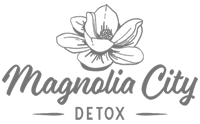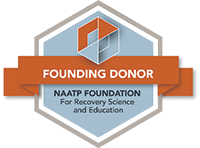DEPRESSION AND ADDICTION RECOVERY PROGRAM
Your mental health can be challenging to maintain, especially if you have two disorders co-occurring. It’s common for a mental health disorder to co-occur with substance use disorder. Fortunately, there are treatment options for those who struggle with both their mental health and substance use. If you or are loved one is diagnosed with depression and substance use disorder, you can find recovery at Magnolia City Detox in The Woodlands, Texas.
The causes of depression are a combination of genetic, biological, environmental, and psychological factors. Fortunately, there are treatment options, including medication, therapy, lifestyle changes, and support from family and friends. It’s important to seek help from a mental health professional if you or a loved one experiences symptoms of depression.
Types of Depressive Disorders
- Major depressive disorder: Known as clinical depression, this is the most common type.
- Persistent depressive disorder: In this form of depression, also called dysthymia, symptoms last for more than two years. The symptoms change from mild to moderate to severe throughout the period of depression.
- Seasonal affective disorder: This describes mood changes in the same season each year, often in the fall or winter. Light therapy is effective in treating this type.
- Bipolar disorder: This type is characterized by severe mood swings. Manic moods can lead to compulsivity, while depressive moods involve extreme sadness and fatigue.
- Postpartum depression: This type may develop after giving birth and is similar to major depressive disorder, but specifically affects parents.
- Premenstrual dysphoric disorder: This is a severe form of premenstrual syndrome (PMS) and symptoms begin at the start of a menstrual cycle.
- Psychotic depression: This is a form of major depressive disorder that includes psychosis. Symptoms such as hallucinations and delusions help diagnose it.
Signs and Symptoms of Depression
Here are the most common symptoms of depression:
- Persistent feelings of sadness of hopelessness
- Lost of interest in activities you previously enjoyed
- Changes in appetite
- Gaining or losing weight
- Difficult sleeping, including sleeping too much or insomnia
- Feeling guilty
- Feeling worthless
- Difficulty concentrating
- Irritability
- Withdrawal from relationships
- Headaches or stomach problems
- Thoughts of death or suicide
Why Do People Abuse Substances To Deal With Depression?

Alcoholism and Depression
Heavy drinking for an extended period can even cause depression because of how it affects brain chemicals. Some who have depression stop experiencing symptoms or feel an improvement in their symptoms after detoxing from alcohol and completing a rehabilitation program. Depression and alcoholism share some common symptoms, such as fatigue, sadness, and difficulty concentrating. Drinking excessively can worsen depression symptoms and long-term alcohol use may damage the brain. It’s important for people with depression to understand the dangers of alcohol use and how it may affect their condition.
How Is Depression Treated?
Antidepressants are medications that alter the balance of chemicals and affect mood. There are several types of antidepressant medications including selective serotonin reuptake inhibitors (SSRIs), serotonin-norepinephrine reuptake inhibitors (SNRIs), tricyclic antidepressants (TCAs), and monoamine oxidase inhibitors (MAOIs). Each person may require a different dose to effectively treat depression.
Psychotherapy involves talking to a mental health professional about how you feel. You’ll also discuss behaviors and thoughts. This type of therapy can take place in a group setting or be individualized. The goal is to understand your thought, feelings, and behavior and learn healthy coping strategies.
When medication and psychotherapy aren’t effective, your doctor may suggest electroconvulsive therapy (ECT) which sends electric currents through the brain to help reset and balance chemicals and neurotransmitters. Transcranial magnetic stimulation (TMS) is another procedure that uses magnetic fields to stimulate nerve cells in the brain. Both of these methods have been effective in treating severe depression.
By making certain lifestyle changes, you can improve your mood and reduce some symptoms of depression. Exercise, a sleep schedule, and a healthy diet are changes you can make at home. Rehabilitation centers that treat mental health disorders and substance use disorders teach life skills and help develop habits that support a healthy lifestyle.
Dual-Diagnosis
Our dual diagnosis program at Magnolia City Detox is very effective in treating depression and substance use disorders. It’s beneficial to get help for both issues at once because the symptoms and effects of one can contribute to another. Dual diagnosis has these benefits:
- Addressing the root cause: Substance abuse may be a symptom of depression and by addressing both issues at once you can discover the root cause. Treating both conditions may help this process move more quickly.
- Improving treatment outcomes: You’re more likely to maintain recovery when both depression and substance use disorder are treated. This protects you from digressing into one condition while treating the other.
- Coordinating care: Dual diagnosis also helps mental health and substance abuse professionals develop a treatment plan that’s personalized to treat an individual. This leads to more effective treatment.
- Integrating therapy: When you receive a dual diagnosis therapy helps learn coping skills for both depression and drug and alcohol use.
Request a Confidential Callback
Treatment for Depression and Addiction

Residential treatment provides 24/7 care in a safe and comfortable environment away from home. This is recommended for recovery from addiction and can be very effective when treating co-occurring conditions. Residential or inpatient rehab includes therapy and medication if needed. Our dual diagnosis program at Magnolia City Detox also includes a comprehensive aftercare plan to get you to support when you’re in depression and addiction recovery. Aftercare helps you stay the course of recovery after you return to your normal life. It includes 12-step meetings, counseling sessions, and social activities.
Get Help At Magnolia City Detox
Trying to deal with depression is challenging enough to do on your own. With treatment, you can live a better quality of life and start to feel like yourself again. At Magnolia City Detox we can help you start substance use recovery and treat your depression in our dual diagnosis program. If you or a loved one is experiencing depression as well as substance abuse issues, contact us today to learn how we can help. Our team will answer your questions about depression and treatment.






